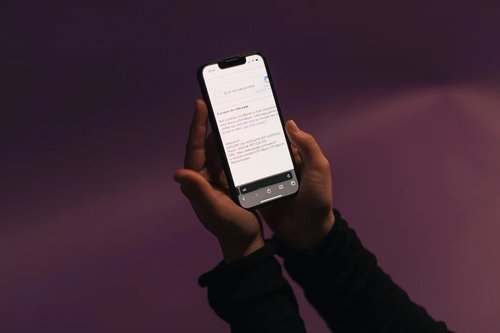Productivity boost: Why mental health outshines long hours
Nov 28, 2024
3 mins


Vikki is a freelance writer and CEO of Time Hackers, which helps individuals and teams achieve more, faster, without working longer hours. She also hosts the top 1% “Hack Your Time” podcast. She’s based in Manchester and is a toddler mum.
Hustle culture has long equated productivity with endless working hours, celebrating late nights and packed schedules as markers of dedication. But research increasingly shows that working more doesn’t necessarily mean working better. Mental health, not hours logged, plays a pivotal role in how effectively time is used.
Employees who prioritize mental well-being—through rest, self-care, or mental health resources—often accomplish more in less time. They bring focus and energy to their tasks while avoiding burnout, outperforming those who push through exhaustion. Shifting focus from hours worked to mental wellness reveals a powerful truth: a healthier mind fosters greater efficiency, engagement, and results.
Why mental health benefits matter
“Mental well-being is no longer just a nice-to-have”, says clinical counselor Rachel Harris. It’s a key factor in workplace productivity. A recent study revealed that 77% of workers now prioritize mental health benefits. When employees are stressed or burned out, their efficiency drops significantly. Conversely, companies offering resources like PTO, flexible schedules, and wellness programs see improved performance and engagement.
The benefits extend beyond emotional wellness. Taking regular breaks—especially vacations—can prevent burnout and enhance overall productivity. In fact, research from Marshfield Clinic found that women who vacationed less than once every two years were more prone to depression and stress, whereas those who vacationed twice annually had fewer symptoms. Similarly, studies from the University of Pittsburgh’s Mind Body Center showed that leisure activities, including vacations, enhance emotional well-being, lower blood pressure, and even improve physical health.
Debunking the long-hours myth
Hustle culture once celebrated long hours as a badge of honor, but the evidence doesn’t support the idea that extra hours improve performance. “Employees who take regular breaks, including mental health days, are less likely to experience burnout or depression, directly impacting absenteeism,” Harris explains. The key isn’t how many hours are worked, but how effectively time is used.
A World Health Organization report found that mental health disorders like anxiety and depression cost the global economy $1 trillion annually in lost productivity. Companies that fail to support mental health may see higher absenteeism, lower engagement, and reduced output. In contrast, businesses investing in wellness programs, therapy, and flexible work schedules often experience increased efficiency, productivity, and morale.
How mental health resources boost time efficiency
Mental health resources equip employees with tools to manage stress, focus better, and maintain overall well-being. Here are key ways these resources enhance time efficiency:
Paid Time Off (PTO)
Employees who can take mental health days without stigma return to work more energized and focused. Consulting firm EY found that for every 10 hours of vacation taken, employees’ year-end performance ratings improved by 8%. Frequent vacationers were also less likely to leave the company. Similarly, the Boston Consulting Group found that high-level professionals required to take time off were significantly more productive.
Wellness programs
Initiatives like mindfulness sessions, fitness classes, and mental health workshops help reduce stress and enhance decision-making skills. “By bringing in expert support, employees feel appreciated and cared for, and this impacts their performance and longevity at an organization,” Harris notes.
Flexible work arrangements
Allowing employees to control when and where they work helps reduce mental strain and boosts productivity. Flexibility accommodates different working styles and life circumstances, such as parents, people with disabilities, or caretakers. This improves efficiency and enables companies to access a broader talent pool.
Expert support
Time management workshops and productivity coaching give employees actionable strategies to work smarter. Partnering with expert companies can teach teams to optimize workflows and avoid burnout.
Advocating for mental health resources
Employees can take proactive steps to advocate for mental health support by engaging HR, sharing data-driven proposals, and fostering open conversations. Highlight the link between mental wellness and business success, sharing data to build a case for change. Suggest initiatives like mental health days, additional PTO, wellness programs, or expert-led workshops.
“If you’ve had a positive experience with a counselor outside of work, and are open to sharing about it with your manager or HR, that could be a great starting point to encourage your workplace to offer additional support,” Harris advises. Encouraging openness about mental health can lead to broader organizational change.
Final thoughts
Mental health is an essential factor in workplace productivity and time efficiency. The outdated myth that long hours equal better performance has been debunked. Companies that support mental wellness foster a workforce that is engaged, efficient, and productive. By investing in mental health resources, businesses not only benefit their employees but also position themselves for long-term success.
Photo: Welcome to the Jungle
Follow Welcome to the Jungle on Facebook, LinkedIn, and Instagram and subscribe to our newsletter to get our latest articles every week!

More inspiration: Productivity & tools

Goal setting: How to bounce back when you feel like a failure
The big F word ... Failure. We all face it, but here’s how to make it your secret weapon for success.
Dec 18, 2024

10 fun ways people are using AI at work
While many use AI for basic tasks like grammar checks or voice assistants, others are finding innovative ways to spice up their work days.
Nov 05, 2024

12 Slack habits that drive us crazy
Slack is a top messaging platform, but coworkers can misuse it. Over-tagging and endless messages can make it frustrating ...
Oct 16, 2024

10 CareerTok creators you should be following
Looking for career advice? CareerTok has quick tips from real experts on interviews and job offers.
Sep 25, 2024

Finding your Genius Zone … and staying there
Have you found your "genius zone" yet? If not, how can you get there?
Jul 10, 2024
The newsletter that does the job
Want to keep up with the latest articles? Twice a week you can receive stories, jobs, and tips in your inbox.

Looking for your next job?
Over 200,000 people have found a job with Welcome to the Jungle.
Explore jobs